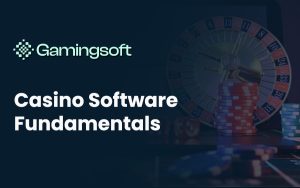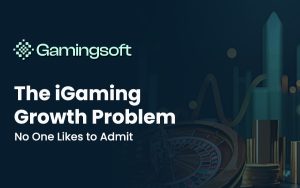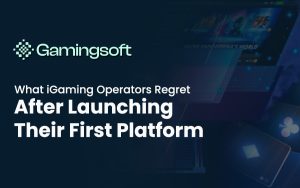For online casino, sportsbook, and multi-vertical operators looking to launch quickly across emerging markets, Curacao offers a streamlined path to compliance and market entry.
This guide provides a clear, structured, and professional breakdown, covering the license’s structure, advantages, regulatory responsibilities, and how operators can leverage it effectively with the right technology stack.

What Is a Curacao Gaming License?
Established in 1996, Curacao’s online gambling framework is one of the world’s earliest licensing systems. Its regulatory model is designed to support international operators by providing a single, unified online gambling license covering the main verticals:
- Online casino
- RNG games & slots
- Sports betting & eSports
- Live dealer
- Lottery products
- Instant and crash games
- Skill-based games
This “all-in-one” structure significantly simplifies the operational and compliance workload for multi-product platforms.
Licensing Structure
Curacao’s licensing system is built around a master-license model. Historically, the government authorised a small number of private master-license holders (commonly referenced as four) who in turn issued sub-licenses to operators. Sub-licenses are the pathway used by the majority of brands.
2.1 Master License Holder Roles
- Oversee AML and KYC arrangements
- Monitor technical and security infrastructure
- Approve hosting arrangements or data-centre providers
- Enforce reporting and internal control obligations
- Ensure responsible gaming standards
2.2 Sub-License Rights for Operators
Most operators acquire a sub-license, granting authority to provide online gambling services subject to its conditions and jurisdictional restrictions.
Sub-licensees typically can:
- Operate multiple gaming verticals
- Integrate third-party game providers
- Host players and process payments
- Manage risk, bonuses, trading and platform systems
This structure offers regulatory coverage with relatively low administrative friction, though compliance duties remain.
Advantages of a Curacao Gaming License
3.1 Fast Time-to-Market
With complete documentation, approval timelines are often achievable within weeks, commonly cited in the industry as around 4–8 weeks, though this varies by applicant readiness and regulatory reforms.
3.2 Cost-Efficient Licensing Model
Curacao licensing is widely considered more cost-effective than many tier-one jurisdictions, offering:
- Lower initial setup costs
- Lower or simplified annual fees
- Reduced administrative complexity for multi-vertical operations
3.3 Tax & Fiscal Considerations
Curacao’s fiscal environment is generally favourable, though actual obligations depend on legal structure and substance requirements:
- No separate gambling VAT
- Potentially low effective corporate tax rates (often cited around ~2%, depending on structure)
- No tax on bets in the manner used by some regulated markets
Operators must consult tax professionals—rates vary by setup.
3.4 Broad Acceptance Across Growth Markets
A Curacao license is commonly used in emerging regions such as:
- Asia
- LATAM
- Africa
- Eastern Europe
- CIS
This makes it a strong option for operators focused on rapid international expansion.
Compliance Requirements for Operators
While Curacao’s framework is historically more flexible than MGA, UKGC, or Isle of Man, operators must still maintain a defined compliance baseline, including:
- AML/KYC policies and due-diligence workflows
- Player verification and monitoring procedures
- Responsible gaming tools
- RNG certification for all RNG-based games
- Approved hosting infrastructure
- Secure wallet and data protection measures
- Transparent reporting and audit readiness
As Curacao modernizes regulation, compliance demands are increasing and becoming more formalized.
Limitations of the Curacao Licensing Framework
5.1 Restricted Access to High-Regulation Markets
A Curacao license does not allow operators to target jurisdictions requiring local licensing, including:
- United Kingdom
- The Netherlands
- Many EU member states
- Most U.S. states
5.2 Player Perception
In mature markets, some players and partners prefer licences from regulators perceived as stricter (e.g., MGA, Isle of Man).
5.3 Ongoing Regulatory Reform
Curacao is undergoing reform aimed at:
- Stronger centralized oversight
- More robust AML/KYC requirements
- Formalized auditing and reporting standards
These enhancements aim to strengthen global credibility.
Conclusion
The Curacao Gaming License remains one of the most commercially practical options for iGaming operators seeking rapid launch capability and multi-vertical flexibility—particularly in emerging markets. Its unified structure, cost-efficiency, and operational freedom support fast deployment.
However, with regulatory reform underway, operators should prepare for progressively higher compliance standards. A Curacao license remains a strong foundation for global expansion, especially when supported by robust technology and compliance frameworks
About GamingsoftGamingsoft is a leading provider of online casino solutions, offering a comprehensive suite of services, including a white-label solution, API integration, payment solutions, game development, and more, to iGaming operators worldwide. With over years of experience, Gamingsoft has earned a reputation for delivering innovative and reliable solutions, helping clients succeed in the competitive iGaming industry.




